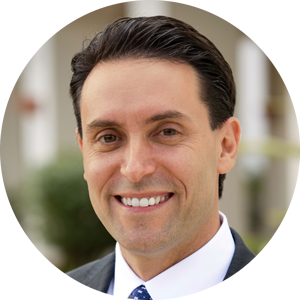How Your Brain Makes You Susceptible to Fraud
Last year, a family member got sick. In addition to her physical ailments, her mental clarity nose-dived. I not only was worrying about her health, but also was very concerned she’d be vulnerable to fraud, as there were caregivers in her house.
But even healthy seniors fall prey to increasingly sophisticated financial abuse and fraud.
It turns out there is a physiological reason for this.
According to a UCLA study, older people have less activity in the part of the brain that is responsible for what is known as “gut feeling.” Oftentimes, it is that gut feeling that tells a person when someone is not trustworthy or something doesn’t seem right.
As we age, these changes in our brains can cause us to become more trusting and focus on positive thoughts and memories, making us more likely to help someone out or believe that a windfall is within our reach.
Fortunately, this family member and I have a very strong relationship, and she trusted me to look after her finances while she recovered. We signed a power of attorney for her accounts, and I let her advisor know I was monitoring things for now.
Importantly, I let the advisor and the relative know that my brother also had access to the information.
I trust my brother completely. I shared this information because I wanted the family member and the advisor to know that there were no secrets – because secrecy is one of the signposts of fraud.
In many of the scams that target older people, the victim is told to keep what is happening quiet. They are forbidden from telling their spouse, children, advisor and friends.
Sometimes the threat is that the senior won’t receive the funds they’ve been promised or get out of the supposed trouble that they are in.
Those threats can escalate to physical violence or harm to their family, though I’ve never heard of someone who was physically hurt in a scam by someone they didn’t know.
If you are ever told to keep a financial transaction a secret, run – don’t walk – away. I’ve never met a legitimate financial advisor, salesperson or anyone involved in a real financial opportunity who insisted on secrecy.
The same goes for a representative from a government agency. If you have a real problem concerning the IRS, Social Security Administration, FBI, etc., they will not insist on secrecy either.
In fact, just the opposite is true. They will often encourage you to get help from a professional, such as a lawyer or accountant.
Furthermore, if you have a relative who fell for a scam, you may want to have them assessed by a doctor for dementia or Alzheimer’s.
According to a study published in Annals of Internal Medicine, “Low scam awareness in older people is associated with risk for developing Alzheimer dementia or mild cognitive impairment in the future.”
So it’s not just a matter of not being smart. Lots of intelligent people fall for scams. In fact, sometimes we’re shocked that someone so sophisticated could be duped by what seems like such an obvious fraud.
But as we age, our bodies change. And that includes our brains.
Simply being aware that the chemistry shift in your brain may make you more trusting of others can help you keep your guard up and question things that sound too good to be true.
What are some of the things you do to prevent yourself or loved ones from becoming victims of fraud? Leave your thoughts in the comments section.
About Marc Lichtenfeld
Marc Lichtenfeld is the Chief Income Strategist of Investment U’s publisher, The Oxford Club. He has more than three decades of experience in the market and a dedicated following of more than 500,000 investors.
After getting his start on the trading desk at Carlin Equities, he moved over to Avalon Research Group as a senior analyst. Over the years, Marc’s commentary has appeared in The Wall Street Journal, Barron’s and U.S. News & World Report, among other outlets. Prior to joining The Oxford Club, he was a senior columnist at Jim Cramer’s TheStreet. Today, he is a sought-after media guest who has appeared on CNBC, Fox Business and Yahoo Finance.
Marc shares his financial advice via The Oxford Club’s free daily e-letter called Wealthy Retirement and a monthly, income-focused newsletter called The Oxford Income Letter. He also runs four subscription-based trading services: Technical Pattern Profits, Penny Options Trader, Oxford Bond Advantage and Predictive Profits.
His first book, Get Rich with Dividends: A Proven System for Earning Double-Digit Returns, achieved bestseller status shortly after its release in 2012, and the second edition was named the 2018 Book of the Year by the Institute for Financial Literacy. It has been published in four languages. In early 2018, Marc released his second book, You Don’t Have to Drive an Uber in Retirement: How to Maintain Your Lifestyle without Getting a Job or Cutting Corners, which hit No. 1 on Amazon’s bestseller list. It was named the 2019 Book of the Year by the Institute for Financial Literacy.






